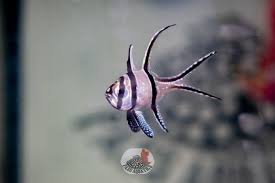Dragons have played a central role in Chinese spiritual and religious traditions for centuries. In ancient China, they were believed to be divine messengers, connecting the heavens, the earth, and humanity. Their influence extended into rituals dedicated to earth deities and celestial gods, shaping the way people honored nature, sought blessings, and maintained harmony with the spiritual world.
This article delves into the significance of dragons in Chinese religious ceremonies, focusing on earth deity worship, celestial reverence, temple rituals, and festival celebrations.
I. Dragons as Sacred Beings in Chinese Spiritual Beliefs
1. Dragons as Intermediaries Between Heaven and Earth
In Chinese mythology, dragons were seen as celestial beings that bridged the gap between the divine and the mortal realm. Unlike their Western counterparts, which were often feared as destructive creatures, Chinese dragons were associated with creation, protection, and wisdom.
- Heavenly Dragons (天龙, Tiānlóng) – These celestial dragons were believed to reside in the sky, guarding the gates of heaven and serving as messengers for the gods.
- Earth Dragons (地龙, Dìlóng) – These dragons controlled the land, rivers, and mountains, ensuring fertility and stability in the natural world.
Because of their divine role, dragons were often depicted in temples and shrines, reinforcing their importance in rituals dedicated to gods and spirits.
2. The Role of Dragons in Feng Shui and Spiritual Harmony
In traditional Chinese belief systems, Feng Shui (风水, Fēngshuǐ) is a practice that seeks to align human environments with natural energy flows. Dragons were considered essential symbols of Qi (气, life force energy), influencing prosperity, health, and spiritual well-being.
- Dragon Veins (龙脉, Lóngmài) – These were believed to be energy pathways running through the earth, influencing the placement of temples, altars, and tombs.
- Dragon Statues in Temples – Many Chinese temples feature dragon carvings to channel positive energy and ward off negative forces.
These spiritual beliefs shaped religious ceremonies, as offerings and prayers were made to appease the dragons and maintain cosmic balance.
II. Dragons in Earth Deity Worship Rituals
1. The Connection Between Dragons and Tu Di Gong (土地公, Earth God)
One of the most significant deities in Chinese folk religion is Tu Di Gong (土地公), the Earth God, who protects villages, farmlands, and homes.
- Dragon Imagery in Tu Di Gong Worship – In many shrines dedicated to the Earth God, dragon motifs appear on altar carvings and incense burners, symbolizing his control over the land’s fertility.
- Offerings to the Dragon for Good Harvests – Farmers performed rituals asking the dragon and the Earth God to ensure rainfall and bountiful crops.
By incorporating dragons into Tu Di Gong worship, believers emphasized their role in maintaining harmony between humanity and the land.
2. Dragon Dance Rituals in Earth Worship Ceremonies
The Dragon Dance (舞龙, Wǔlóng) is an essential part of many earth-worshipping festivals, especially those dedicated to fertility, prosperity, and natural harmony.
- Rain-Seeking Ceremonies (求雨仪式, Qiú Yǔ Yíshì) – In times of drought, communities performed dragon dances while offering prayers to the Earth God and Dragon Kings to bring rain.
- Temple Celebrations Honoring the Earth Spirits – During major temple festivals, dragon dances symbolized the spirit of the land coming to life, ensuring peace and stability for local communities.
Through these ritualistic performances, the dragon continued to serve as a guardian of nature and the people.
III. Dragons in Worship of Celestial Deities
1. The Dragon Kings and Their Role in Water and Weather Rituals
The Four Dragon Kings (四海龙王, Sìhǎi Lóngwáng) were celestial rulers of the four seas and had a profound role in Chinese religious ceremonies.
- Eastern Dragon King (敖广, Áo Guǎng) – Ruler of the East Sea
- Western Dragon King (敖闰, Áo Rùn) – Ruler of the West Sea
- Southern Dragon King (敖钦, Áo Qīn) – Ruler of the South Sea
- Northern Dragon King (敖顺, Áo Shùn) – Ruler of the North Sea
These dragon deities were worshipped in temples across China, especially in coastal and river-based communities.
- Water Sacrificial Rites (祭水仪式, Jì Shuǐ Yíshì) – Villagers performed offerings to the Dragon Kings before embarking on sea voyages or during monsoon seasons.
- Prayers for Rain (祈雨祭祀, Qí Yǔ Jìsì) – Farmers relied on Dragon King shrines to summon rain and prevent natural disasters.
Temples dedicated to these dragon deities were lavishly decorated with dragon motifs, reinforcing their spiritual authority.
2. Dragons in Taoist and Buddhist Rituals
Both Taoism and Buddhism incorporated dragons into their spiritual practices.
- Taoist Temples and Dragon Energy – In Taoist philosophy, dragons symbolized the flow of the universe’s energy. Many Taoist priests invoked dragon spirits in rituals for protection and longevity.
- Buddhist Dragon Guardians (龙护法, Lóng Hùfǎ) – In Buddhist mythology, dragons were seen as protectors of sacred texts. Temples often depicted dragons coiling around sacred relics and pillars to signify their role as divine guardians.
These influences helped establish dragons as powerful symbols of spiritual protection and enlightenment.
IV. Dragon Symbolism in Festivals and Ancestral Worship
1. The Dragon Boat Festival: Honoring Spirits and Seeking Blessings
The Dragon Boat Festival (端午节, Duānwǔjié) is one of China’s most well-known celebrations that highlights the sacred connection between dragons and ancestral spirits.
- Commemorating Qu Yuan (屈原, Qū Yuán) – The festival honors the famous poet and minister, who drowned himself in a river. The dragon boat races were believed to scare away evil spirits and guide his soul to peace.
- Dragon Boats as Vessels for Spiritual Communication – The dragon-headed boats represented a bridge between the human world and the spiritual realm, reinforcing the belief that dragons could carry prayers to the heavens.
This festival demonstrates how deeply dragons are woven into China’s religious and ancestral traditions.
2. Ancestral Worship and Dragon Motifs in Family Shrines
Chinese families often incorporate dragon imagery into ancestral altars and family shrines to symbolize:
- Protection of lineage – Dragons are seen as guardians of family prosperity and harmony.
- Blessings for future generations – Offerings to ancestral spirits often include dragon-themed incense burners or jade dragon figurines.
By honoring their ancestors with dragon symbols, families uphold the spiritual values of respect, continuity, and divine guidance.
Conclusion: The Enduring Spiritual Legacy of Dragons
From temple ceremonies to ancestral worship and festival traditions, dragons continue to shape China’s spiritual landscape. Their presence in earth deity worship, celestial reverence, Taoist and Buddhist rituals, and cultural celebrations reinforces their role as divine intermediaries and guardians of harmony.
Whether summoning rain, protecting temples, or guiding souls, dragons remain powerful symbols of faith, prosperity, and cosmic balance in Chinese religious traditions.


